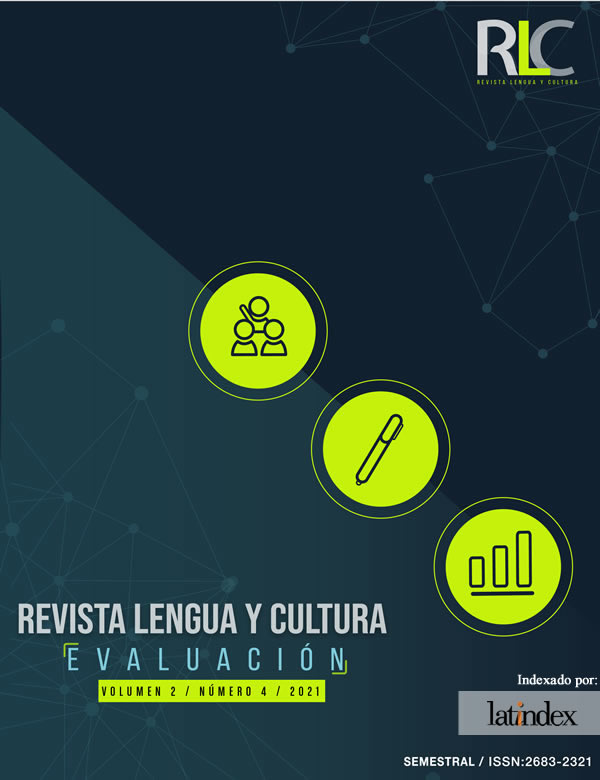Digital tools for improving teenager's speaking
DOI:
https://doi.org/10.29057/lc.v2i4.6919Keywords:
EFL, ICT, speaking, motivation, teenagersAbstract
In EFL classes, Mexican teenagers often face problems when trying to communicate orally in English. Martin and Molina (2011) argue that “…not knowing how to speak effectively limits severely our career possibilities and personal” (p. 92). The present paper reports on a study of the impact of incorporating different online resources to improve adolescents’ speaking in English through an exploration of students’ perceptions regarding their use, as part of an extracurricular English language course at a Mexican public secondary school.
Students recorded themselves once a week using specific online tools for their homework. The main purpose was to give students the opportunity to record and hear themselves as many times as necessary until they considered their work was acceptable. Additionally, they were aware of being listened by their teacher and classmates. Results seem to suggest that students’ self-confidence when speaking in the classroom, motivation to speak and awareness of features of acceptable speech were enhanced by using these online tools to practice speaking independently.
Downloads
Publication Facts
Reviewer profiles N/A
Author statements
- Academic society
- N/A
- Publisher
- Universidad Autónoma del Estado de Hidalgo
References
Arús J., & Rodriguez P. (2014) Autonomous learning resources for ELT: What learners think Encuentro 23, 2014, pp. 1-15
Cakici, D. (2016). The use of ICT in teaching English as a foreign language. Retrieved from Participatory Educational Research (PER), 73-77. Retrieved from https://www.researchgate.net/publication/322294214_The_use_of_ICT_in_teaching_English_as_a_foreign_language
Charles, K.J., & Dickens, V. (2012). Closing the Communication Gap. Teaching Exceptional Children, 45 (2), 24-32
Conrad, R., & Donaldson, J. (2004). Engaging the online learner: Activities and resources for creative instruction. San Francisco, Calif.: Jossey-Bass
Creswell, J. W. (2002). Educational research: Planning, onducting, and evaluating quantitative. (4th Edition). Pearson
Creswell, J. W., & Poth, C. N. (2018). Qualitative inquiry and research design: Choosing among five approaches. (5th Edition). Sage publications.
Delmas, P.M. (2017). Using VoiceThread to create community in online learning. TechTrends, 61, 595-602.
Indiana University (2019). Retrieved from: https://kb.iu.edu/d/bduw
Izquierdo, J., de-la-Cruz-Villegas, V., Aquino-Zúñiga, S. P., Sandoval-Caraveo, M. D. C., & García-Martínez, V. (2017). Teachers’ use of ICTs in public language education: Evidence from second language secondary-school classrooms. Comunicar, 25(50), 33-41.
Kent, D., (2017). Constructing Visually-Based Digital Conversations in EFL with VoiceThread. Teaching English with Technology, 17 (1), 3-16.
Kim, S. H. (2014). Developing autonomous learning for oral proficiency using digital storytelling. Language Learning & technology 18 (2), 20-35. Retrieved from http://llt.msu.edu/issues/june2014/action1.pdf
Mahmoud, N. and Abdelsalam, H. (2016). Using Voice Thread to Develop EFL Pre-service Teachers’ Speaking Skills. International Journal of English Language Teaching, 4(6), 13-31. Retrieved from http://www.eajournals.org/wp-content/uploads/Using-Voice-Thread-to-Develop-EFL-Pre-Service-Teachers-Speaking-Skills
Martin, A and Molina, M. (2011) The Use of ICTs to Improve Communicative Skills in a Bilingual Context: an Educational Project of the Spanish Ministry of Education in Melilla, ICTLL (4th Edition). Pixel
Moya, M. (2013). De las TICs a las TACs: la importancia de crear contenidos educativos digitales. DIM: Didáctica, Innovación y Multimedia, (27), 1-15.
Pacansky-Brock, M. (2014). Learning out loud: Increasing voluntary voice comments in online classes. In P. Lowenthal, C. York, & J. Richardson (Eds.), Online learning: Common misconceptions, benefits and challenges (pp. 99–114). New York: Nova Science Publishers
Yunus, M. (2007). Malaysian ESL teachers’ use of ICT in their classrooms: expectations and realities. ReCALL, 19(1), 79-95.




















